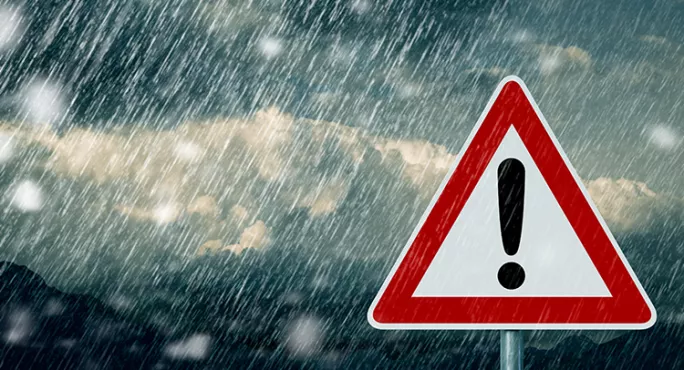- Home
- ‘As the nights draw in, the teaching crisis darkens...’
‘As the nights draw in, the teaching crisis darkens...’

My article this week could have gone either way, so I’ve let it go both ways: a brief foray into the truly grim, then some solution-focused thinking.
Keeping my Pollyanna head on is tougher in November than in other months, especially as teachers continue to send me their tales of toxic experiences and professional and personal devastation. There’s a new theme creeping it, and it’s of a cynicism and a resignation which I find infinitely more terrifying than any of the outrage and indignation of previous years’ research. You can work with anger and outrage; you can reassure people if they’re upset. They talk to you.
Once teachers start reinforcing their shells, refusing to speak out because it’s no longer “worth it” and watching their professional integrity crumble before their eyes, we have to acknowledge that the teacher crisis dial moves from “critical” to “catastrophic”.
The teachers contacting me are profoundly weary. They use humour to deflect from the deep sense of betrayal - “Hah - who has time to think about wellbeing?” - and speak increasingly of “keeping their heads down”. Bespoke CPD? Personalised professional development? Frankly, many are too busy surviving day-to-day to give such things a second thought.
The reptilian brain appears to have kicked in. They’re surviving at work in order to retain a vague sense of being human outside it.
It’s with a mixture of relief and wry laughter that I read back my own words from last November, when I was clearly struggling. This is what I wrote:
“Predictably, I hurtled into the Autumn term with every last fibre of my being. My motivations were entirely noble. I love my job - it’s my second year in the school I plan on sticking with for many years to come. My sense of moral purpose is solid, and my determination to give our students the very, very best we can is fierce to the point of dominating rather more energy than is quite sensible. I also, I suppose, felt I had something to prove - something around being committed to my role despite - or, indeed, because of - my writing.”
How teachers can not just survive, but thrive
As I say, this article could continue to plunder the depths of teachers’ frustration (a Budget which tells us we can buy ourselves some “little extras” like a new minibus - don’t make me laugh!), but our frustrations are not, and never can be, our students’ problem, and it is for them that we arise before daybreak and return home well after dark. So let’s focus on making the very best of it. To coin a mantra from early parenthood, of which I was reminded by a wise Twitter friend, “this too will pass”.
So, how can we make the best of it and try to not just survive, but thrive? Let’s look back at some of the positive themes from the teachers surveyed for my Year in Teaching project this time last year.
When asked what had changed since the previous month, 13 per cent of the 175 participants cited an increase in their levels of optimism; 19 per cent a sense of increased sense of support from their line manager; and 31 per cent an increased sense of support from colleagues.
When asked what they had learned about themselves, three respondents said they had found that they were more resilient than they had previously thought. Four others cited increased confidence in their roles and a number wrote of feeling more valued. Two respondents wrote specifically of whole-school involvement that brought with it a greater sense of enjoyment to the role, and another had realised that being inspected by Ofsted wasn’t worth the anxiety that led up to it.
The students in the classroom dominated the participants’ most positive moments or highlights of the month, as has become a pattern and as is right and just. It was also notable that positive feedback - thanks and recognition for doing a great job - dominated the descriptions of positive experiences.
And finally, despite a long, dark month and the ongoing challenge of performance tables, curriculum change and teacher shortages, 60 per cent reported that they were “happy in their jobs”, 83 per cent said they were “proud of the job they do”, 91 per cent said they had positive relationships with their students; and 90 per cent said they had positive relationships with colleagues. Not bad.
And finally, you can’t pour from an empty vessel, so we have less choice than ever but to look after ourselves. Here are some ideas harvested from my fabulous Twitter network.
- “It’s a beautiful Autumn. Breath in the daylight and drink in the colours whenever you can.”
- “Feel like an early night? Just do it.”
- “Drink hot chocolate with a marshmallow and some cream. Then go to the gym.”
- “Ask for help if you need it from a trusted colleague or Education Support before things hit crisis point.”
- “Watch otter videos.”
- “Be kind to yourself, and remember the truism about no gravestone ever being adorned with the words, ‘I wish I’d spent longer at work.’”
Dr Emma Kell is a secondary teacher in north-east London and author of How to Survive in Teaching
Keep reading for just £1 per month
You've reached your limit of free articles this month. Subscribe for £1 per month for three months and get:
- Unlimited access to all Tes magazine content
- Exclusive subscriber-only stories
- Award-winning email newsletters



